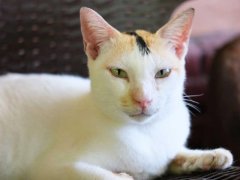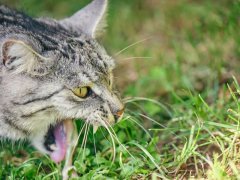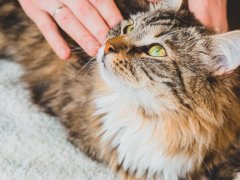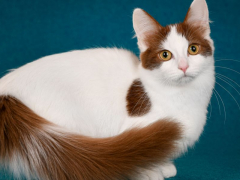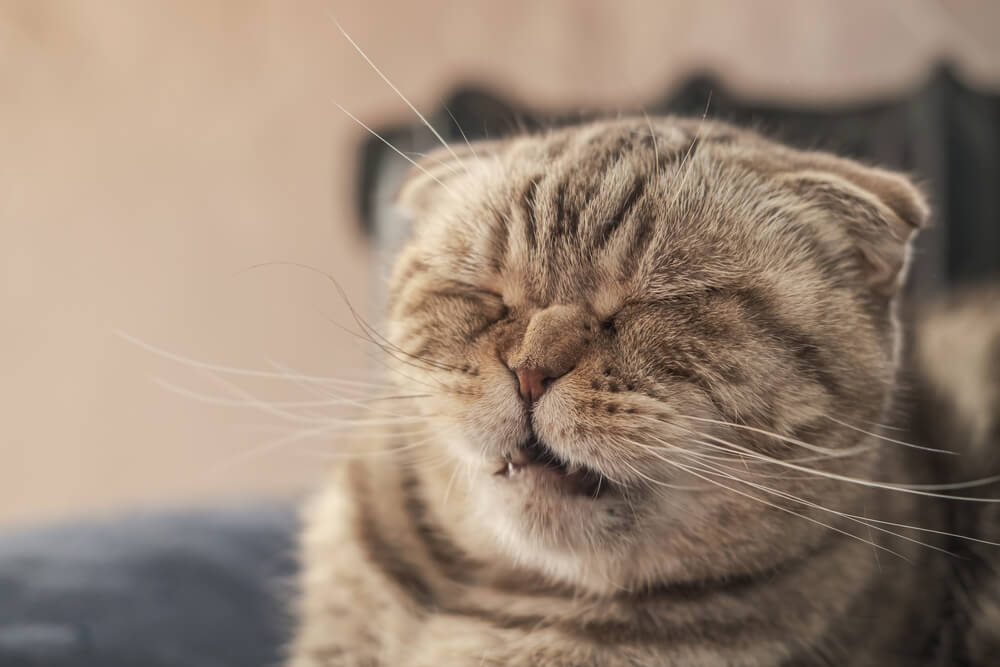
Do cats get hiccups? just like humans and all other mammals, the answer is yes, cats hiccup. You may not recognize them because cat hiccups sound a little bit different than dog or human hiccups.
Cat hiccups sound more like a chirp than the classic hiccupping sound. Cat hiccups are more rare than dog hiccups, and while they are usually completely normal, if you notice that your previously not-hiccupping cat suddenly starts hiccupping, or if your cat starts hiccupping a lot more than before, than it could be an indication that there is something else going on that might need veterinary attention.
Here’s a Video that shows how Cats Hiccup sounds like:
Why Do Cats Hiccup?
Hiccupping in any mammal including cats is due to spasms in the diaphragm, the largest breathing muscle in the body. The diaphragm is located behind the lungs, at the end of the rib cage.
It is a muscle that is shaped like a dome and facilitates breathing by involuntarily contracting rhythmically. When something causes it to spasm, such as irritation of the nerves that supply the diaphragm, it results in hiccups.
Causes of Cat Hiccups
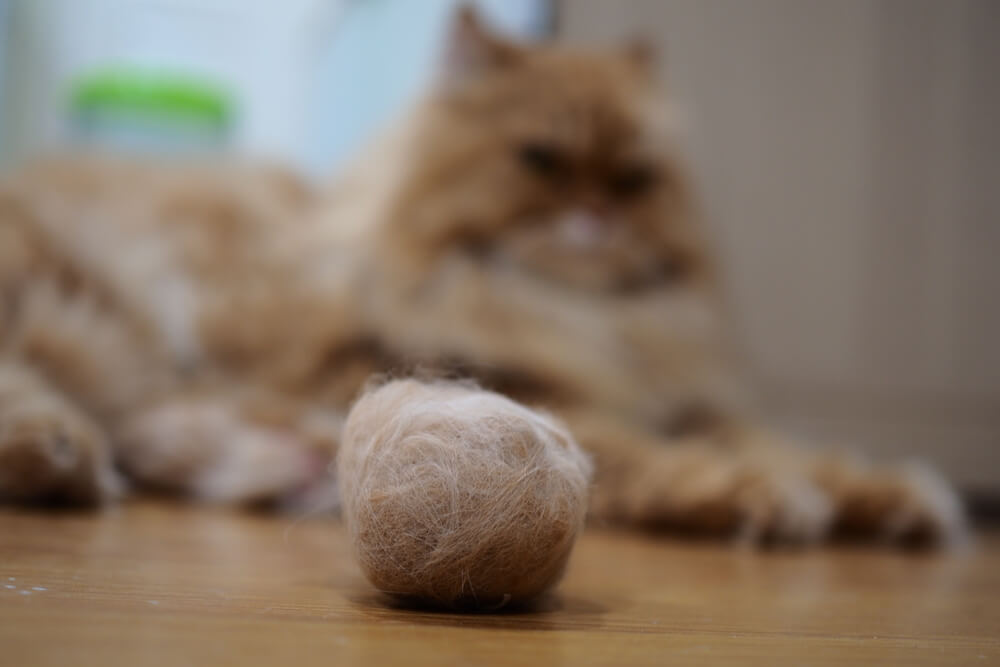
There are many causes of cat hiccups, with hairballs being one of the most common. Cats may also start hiccuping because they eat too quickly.
There are many causes of hiccups in cats. Hairballs are a common cause of hiccups, and can irritate the esophagus and the nerve that supplies the diaphragm. Kittens hiccup because their nervous system isn’t fully developed.
If you notice your cat’s hiccups after eating, it could be that your cat is eating too fast and swallowing a lot of air at the same time.
If you have an older cat that suddenly started hiccupping, or is hiccupping more than usual, then there could be a disease process that is causing the hiccupping. Conditions like intestinal parasites, heartworm disease, feline asthma, heart disease, cancer, food allergies, or even ingestion of a foreign body can all cause irritation to the nerve that supply the diaphragm, and result in chronic hiccups.
Can Cats Get Hiccups When Purring?
There is no direct connection between a cat purring and experiencing hiccups. Purring is a rhythmic sound produced by the vibration of the cat’s vocal cords, often associated with contentment or relaxation. Hiccups, on the other hand, result from involuntary contractions of the diaphragm. While cats may occasionally hiccup, it’s not typically linked to the act of purring.
Cat Hiccuping After Eating
If your cat experiences occasional hiccups after eating and seems otherwise healthy, it’s usually not a cause for concern. If the hiccups persist, are accompanied by other concerning symptoms, or if you notice any changes in your cat’s behavior or health, it’s advisable to consult with a veterinarian.
Can Hiccups Be Harmful?
Occasional hiccups are normal in cats of all ages, but frequent hiccups, a sudden increase in hiccups, or a hiccupping cat that looks and acts sick may be caused by an underlying problem.
Cat hiccups in older cats are commonly caused by gulping air from eating too fast and hairballs. Cat hiccups can also be caused by intestinal parasites, heartworm disease, feline asthma, heart disease, cancer, food allergies, or ingestion of a foreign body.
What To Do if Your Cat Gets Hiccups?
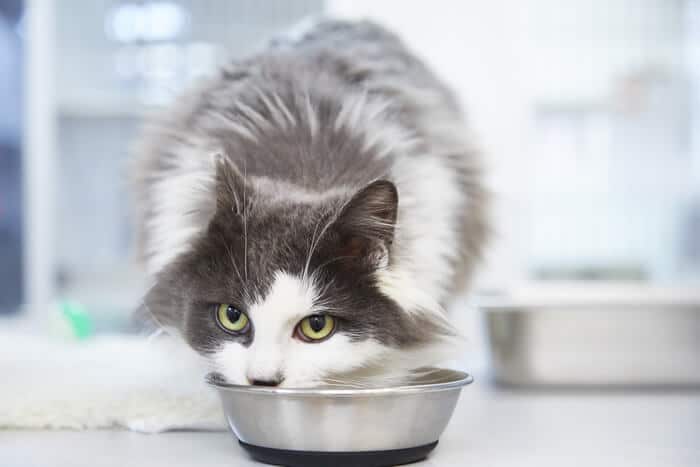
In most cases, hiccuping is not a cause for concern and you don’t need to do anything to treat it.
Normally, pet owners don’t need to do anything if their cat occasionally gets hiccups because hiccups usually resolve on their own so there really is not an easy way to get rid of cat hiccups.
If hiccupping lasts longer than one day, if the hiccups are severe, if the hiccups happen daily, or if hiccupping is accompanied by additional signs of sickness, including vomiting, drooling, weight loss, loss of appetite, seizures or tremors, or lethargy, then consult with your local vet.
If your cat is in the habit of gulping food out of the food bowl as fast as possible, then that is likely the reason why your cat is hiccupping.
If this is the case, then try using an automatic feeder, change to feeding multiple smaller portions of meals during the day, use a food puzzle to feed your cat, or spread kibble out on a baking sheet to slow down the rate at which your cat is eating.
If your cat eats quickly because there are other cats in the household that bully him away from the food, then separate the cats when you feed them.
Also Read: The 10 Best Cat Slow Feeders & Puzzle Feeders
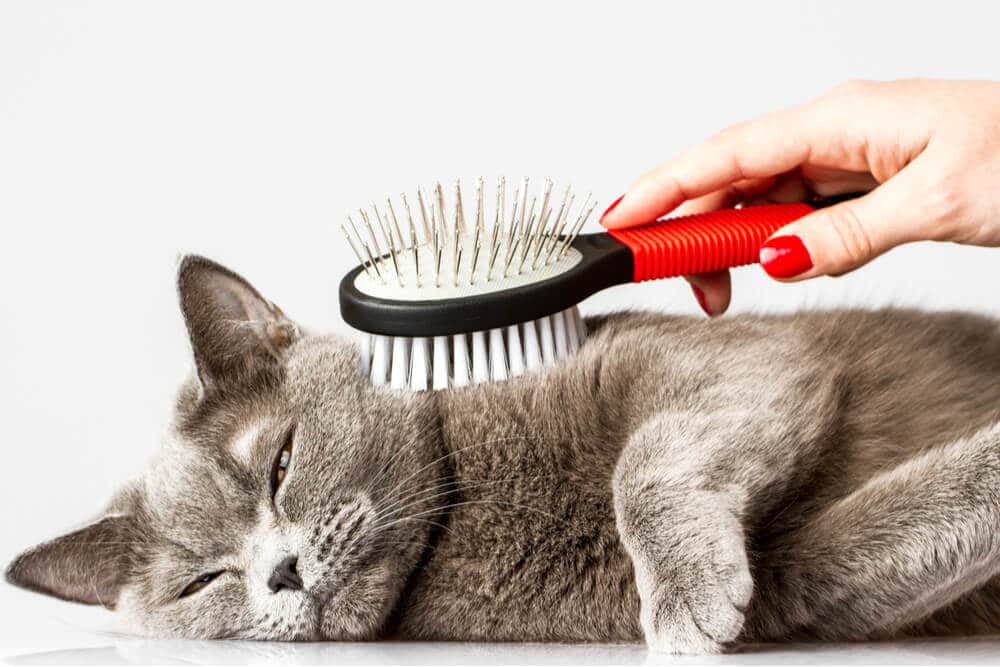
Regularly brushing your cat can help to reduce the amount of fur he ingests and, hence, the incidence of hairballs.
If your cat is hiccupping due to hairballs, then the following recommendations should help your cat:
- Groom your cat frequently to reduce shedding
- Feed your cat a food that is designed to reduce hairballs
- Administer an oral supplement like laxatone to help hairballs to pass
If you notice an increase in hiccups, schedule an appointment with your local DVM to have your cat checked out, especially if the hiccups are accompanied by any other signs of illness. This is because sometimes the hiccups can be a sign that something else is wrong, and your cat needs help.
If you are concerned that the hiccups may be due to a serious health problem, then never hesitate to consult with your friendly, neighborhood veterinarian.
